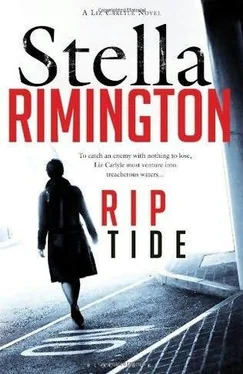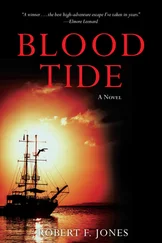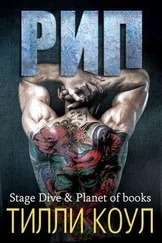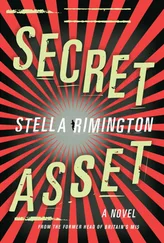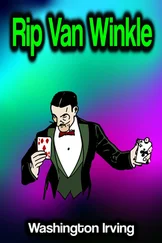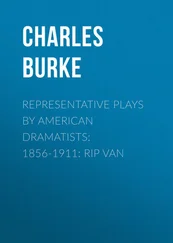Although they had lost touch in recent years, Fane had once known Blakey well. They had been at the same Oxford college before going their separate ways. Blakey had spent a year or so doing research for a thesis he never finished, while Fane had worked as a trainee on the Middle East desk of an investment bank. Then, to their mutual surprise, they had met up again on the initial MI6 training course. Together they had filled and emptied dead letter boxes, practised brush contacts and covert agent meetings all over Hampshire; they’d been arrested by the local police, and had survived rough interrogations by the SAS. They had dozed through lectures by retired officers reliving the glories of their Cold War agent-running triumphs, and at the end of it all, both had passed with honours and been marked out as high fliers.
Their careers had run in parallel for a while, then gradually Fane had pulled away and by the time Blakey had retired, his old college friend was several ranks above him. But Fane had always respected Blakey and knew that he would not have rung unless there was something important to talk about.
Fane had called up the file on UCSO but had found it pretty uninformative. He was interested in all large international charities; they operated in trouble spots all over the world – places from which he needed information, but from which information was difficult to obtain. But most charities kept intelligence services at arm’s length; if they supped with them at all, they supped with a very long spoon, since they couldn’t afford to have their people suspected of being spies. So the file on UCSO was very thin. From what he could gather, it was mainly a co-ordinating and shipping organisation, not one with teams of aid workers in the field, so not on the face of it of particular interest to Fane. But if Blakey had something to say about the hijacking attempt, some information about the gangs of pirates operating out of Somalia, then Fane wanted to hear it.
Somalia was a worry. It wasn’t a country any more, not in any real sense. Rebel groups proliferated, fighting with each other or with any new government that emerged. The native population kept its head down amidst the warring factions, and scraped a living by subsistence farming. Or fishing, though Somalia’s inability to patrol its own waters meant foreign fishing fleets had depleted the fish stocks to the point of disappearance. With no legitimate living to be made, small wonder many fishermen had turned to piracy.
All of which was worrying enough, but Fane knew that such chaos created just the sort of situation that attracted people even more sinister than pirates. Al Qaeda, under pressure in Pakistan and Afghanistan, was looking for safer bases from which to launch their attacks against the West. Yemen was already on their list – was Somalia following? Fane thought of the young boy sitting in a Paris jail cell, arrested helping hijack UCSO’s ship and carrying a British driving licence.
He paid off the taxi, still stuck in traffic, and walked north, leaving the hubbub of Oxford Street for the quieter byways of Fitzrovia. He passed the crumbling brick pile of the former Middlesex Hospital. Further along, dark brick mansion blocks lined the narrow street. It was not a part of the city he often visited. It was too full of students drinking on the pavements outside the pubs, and media and fashion types in their bright, flashy clothes. Fane, in his dark suit and polished leather shoes, didn’t fit in here; he felt uncomfortable.
There had been a time when he had been able to blend into surroundings many times more exotic than these. He had spent several years in Delhi where he’d met his agents in the bazaars around the Red Fort with barely a second thought, and he’d served in Moscow in the Cold War with the KGB hot on his heels every time he left the Embassy. He certainly hadn’t worn a three-piece suit in those days.
But this was London, and nowadays his heron-like figure was invariably clothed in a well-cut suit, and he was most at ease in Whitehall or walking through St James’s Square and turning left along Pall Mall for the Travellers Club.
To his surprise the address Blakey had given turned out to be a handsome modern building, six storeys of glass and steel set beyond a courtyard leading off the street. A directory on the wall behind the security desk showed the names of a dozen enterprises. One of these was UCSO.
On the third floor Fane found Blakey waiting for him, looking little changed from when they had worked together.
‘Geoffrey. How very good to see you,’ Blakey said, offering his hand. ‘Let’s go into my office and I’ll tell you what it’s all about.’
They walked through a large, brightly lit open-plan floor where young people dressed in jeans and T-shirts sat working at computers or stood talking together. The atmosphere seemed busy and cheerful.
Blakey led the way into a small ante-room in one corner of the floor. ‘My PA’s off ill,’ he explained, as they passed the empty desk. He shut the door behind them and led Fane into his own office, a large room with a view over the little courtyard below. The walls were decorated with Chinese prints, and a carved African mask hung behind the large glass desk. Another door leading straight out to the open-plan area was already closed.
‘This is all very smart,’ said Fane as Blakey gestured to a leather armchair in front of his desk.
‘Yes. We’re lucky. The rent’s not too bad, actually,’ he said, sitting down. ‘We managed to negotiate a long lease when the building first opened. But it’s always a delicate balance,’ he added with a smile that seemed slightly defensive. ‘Too poor an appearance and you look amateurish; anything too smart, and people think you’re spending their donations on overheads.’
Then he got down to business. ‘Thanks for coming over so promptly, Geoffrey, and I hope I’m not wasting your time. But I really feel I need some advice and I couldn’t think of anyone better to give me it than you.’
Fane sat back in his chair, crossed one long leg over the other and watched and waited. Blakey had always had a certain charm, he reflected, which had served him well as an agent runner and no doubt helped a lot in the charity world. Fane had no objection to its being exercised on him. It would have no effect whatsoever on what he decided to do.
Blakey went on: ‘You’ll have to judge what it means for yourself – all I can say is, it worries me. I’m sure you know what we do in UCSO?’ Fane nodded. ‘Our cargoes are assembled and shipped by our office in Athens. In the last nine months two shipments we’ve made have been hijacked off the Somalian coast. The shipping line’s insurers and our own broker negotiated, and the ship’s crew were returned. Last week a third attempt was made, but fortunately this time it was foiled by the French Navy.’
Fane nodded. ‘Yes, I heard something about it,’ he said. ‘Dangerous sailing through those seas.’
‘Unfortunately, we haven’t got any choice. Kenya is our major destination. We use it as a safe base from which to supply the Congo, and Rwanda, and Burundi. Air cargo rates are prohibitively high, and any other route by sea would be out of the question.’
That checked out, thought Fane. The alternative would be to sail west the length of the Mediterranean to the Straits of Gibraltar, then down to the Cape, and up past Madagascar to Kenya. Four, maybe five times as long, and probably four or five times more expensive.
Blakey went on, ‘To make things worse, the two shipments that were hijacked were unusually valuable. As was the third.’
‘Valuable? What does that mean? And why should one aid shipment be more valuable than another?’
Читать дальше
